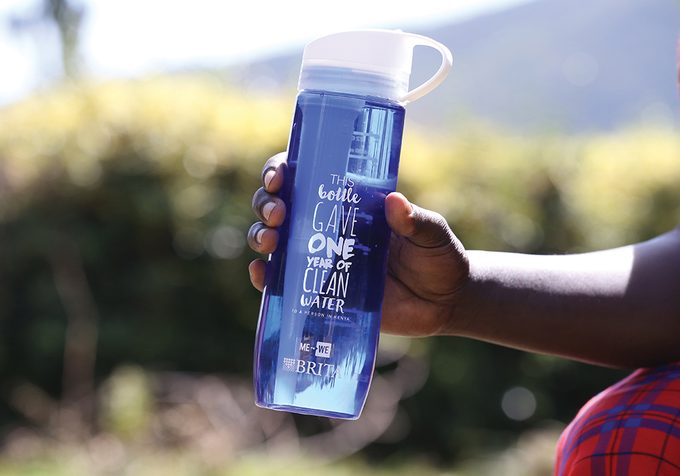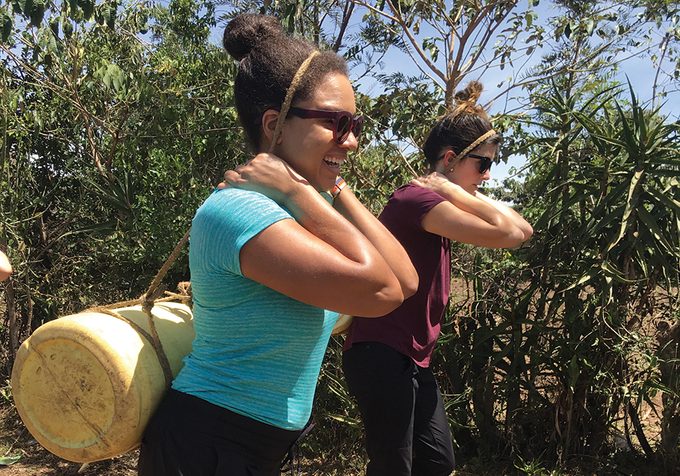A Canadian Initiative That Is Bringing Clean Water to Kenya
A trip to Kenya wasn’t on the radar for writer Ingrie Wlliams. But when she heard about a cool Canadian initiative that supported girls halfway around the globe, she just had to check it out.

Water works: Brita’s clean water initiative
It all started late last year with an email from my boss. The subject line ‘‘How do you feel about going to Africa?” immediately piques my interest. I soon learned that Brita Canada has teamed up with the WE organization to improve clean-water access on a global scale while raising Canadian awareness on the subject.
Supporting Brita’s clean water initiative with sales of a series of water products, the trip is set to witness the first milestone in a multi-year sustainable-change program. The itinerary involves visiting school build sites, a health clinic, a farm and more. However, the heartbeat of the trip is experiencing a water walk and visiting a community called Irkaat, where Brita Canada has funded the building of a borehole. Having absolutely no idea what a borehole is, I say “Yes” and whisk myself off to a travel clinic for a medical upgrade.
During a whirlwind week, I have many firsts, from kissing a giraffe to weapons training with legit Maasai warriors and (new best friends) Wilson and Jackson. The most profound, though, is taking part in a water walk, carrying a 50-pound jerry can of dirty river water strapped to my head.

In her shoes
Turns out, “walk” is too mild of a term. In Irkaat, the water source is at the base of rolling hills. It demands a three-kilometre uphill climb home, complete with relentless sun and rocky terrain. It’s more like a water battle – and it’s fought exclusively by girls as young as 10 (and sometimes younger).
But as challenging as the physical aspects are, it’s the loss of a future that these girls suffer from most: The reality is, when you spend most of your day lugging water, there is no time for an education. That’s when Brita’s clean water initiative comes into play.
That future potential, embodied by high school students we meet from the Kirasuni Group of Schools, is staggering. When our group tours the grounds, we hear from three articulate young women about how the school day starts at 4:30 a.m., which was their choice (the teachers vetoed students who wanted to start an hour earlier). They all happen to share the popular name Mercy, a fun fact mirrored by the three Sarahs in our crew. One Mercy tells me she wants to be an English teacher (to shake up the male-dominated profession). And another Mercy is set on becoming a neurosurgeon.
Clean water at work
That’s where a borehole can change lives. A borehole begins with drilling into underground clean water sources. It ends with a series of pumps and pipes that bring that water to the surface, making it accessible through kiosks for the community. Guaranteed for a minimum of 70 years, the system can create an immediate and profound change.
Your choice of drinking vessel can make that happen. “It’s a cycle,” says Sarah Au, senior brand manager for Brita Canada. “The better the Brita clean water initiative does, the more boreholes we can have, the more girls can go to school, the more families we can affect and the more Irkaats we can have.” And it’s a mission that can’t be watered down.




